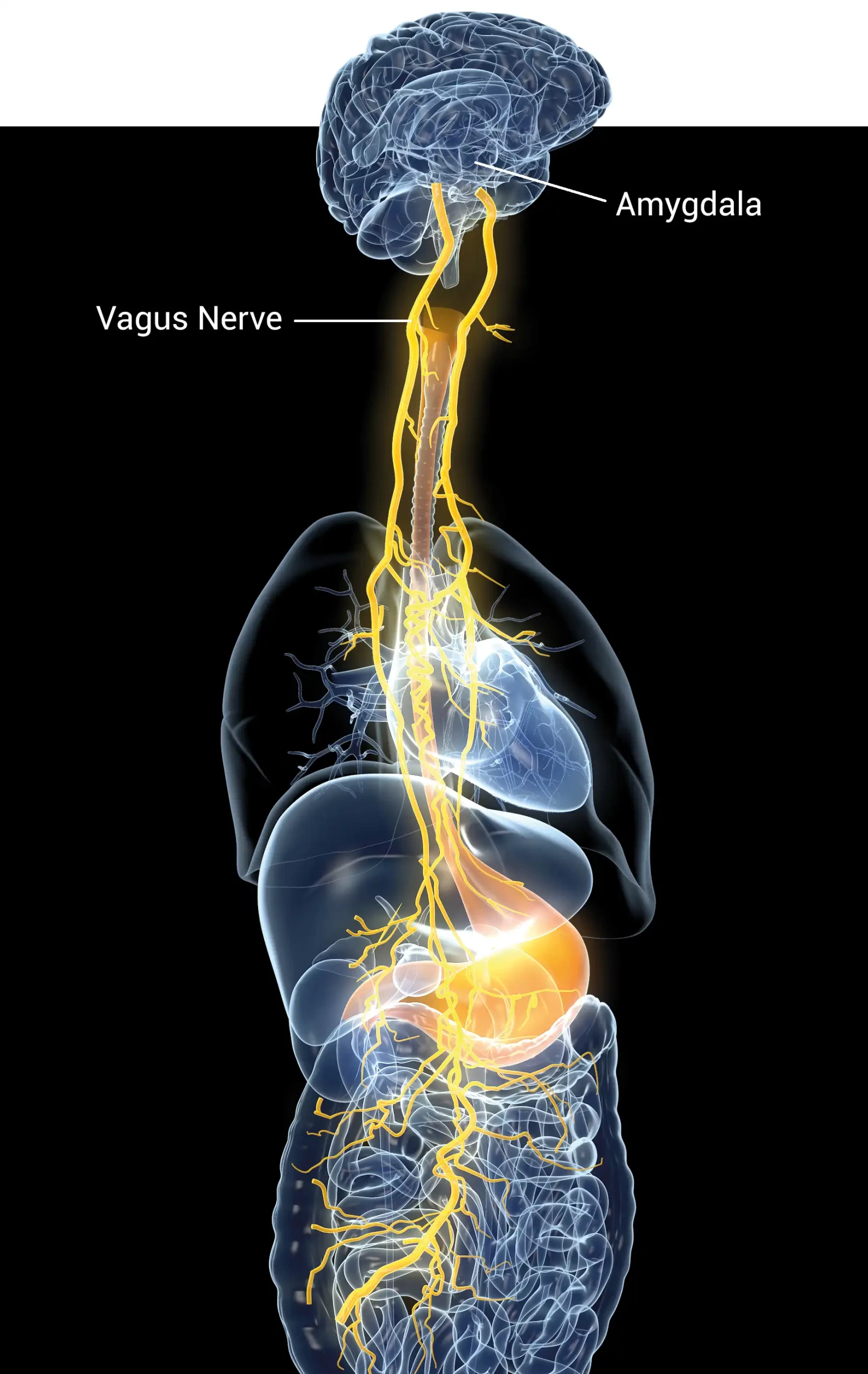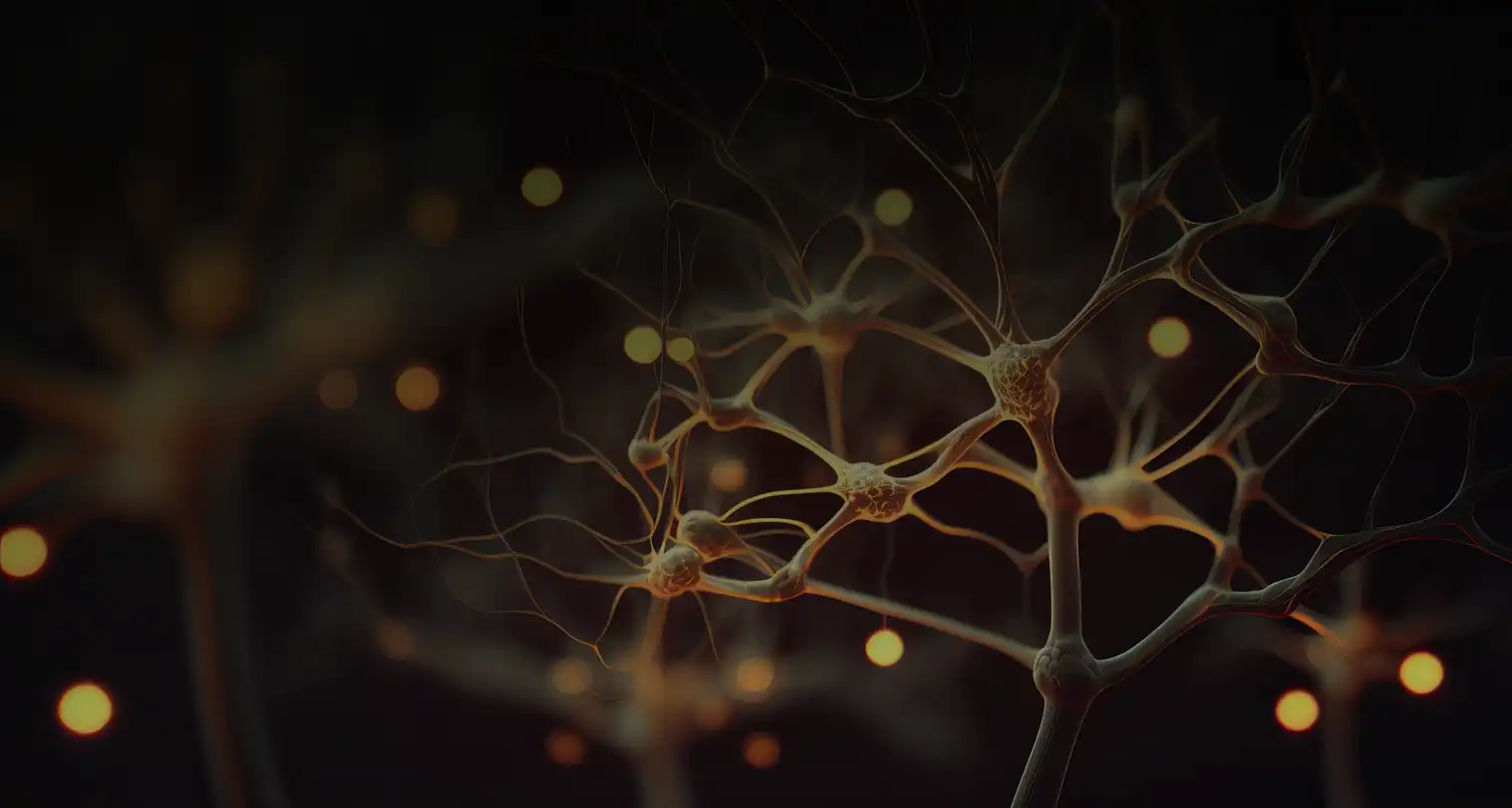
Reimagining the future of patient care
The gut–brain axis is one of the most powerful relationships in our body.
Functional abdominal pain associated with irritable bowel syndrome (IBS) and functional dyspepsia (FD) is believed to involve abnormal processing between the gut and the brain. Specifically, studies in individuals with IBS have demonstrated abnormal activation of an area in the brain called the amygdala, which processes pain.
Through innovation and research, NeurAxis is reimagining the future of patient care so that patients can experience the lifelong benefits of being free from chronic abdominal pain.
PENFS (Percutaneous Electrical Nerve Field Stimulation)
Introducing IB-Stim
IB-Stim is a first-to-market, FDA-cleared, drug-free and non-surgical device worn behind the ear. IB-Stim is indicated for functional abdominal pain associated with IBS and functional dyspepsia in patients 8 years and older without serious side effects or complications.
Neuromodulation Therapies for Chronic and Debilitating Conditions
Neuromodulation Therapies for Chronic and Debilitating Conditions
Targeted therapies for patients suffering from disorders of the gut-brain interaction (DGBI): functional abdominal pain associated with irritable bowel syndrome, functional dyspepsia (FD), and FD-related nausea symptoms.


